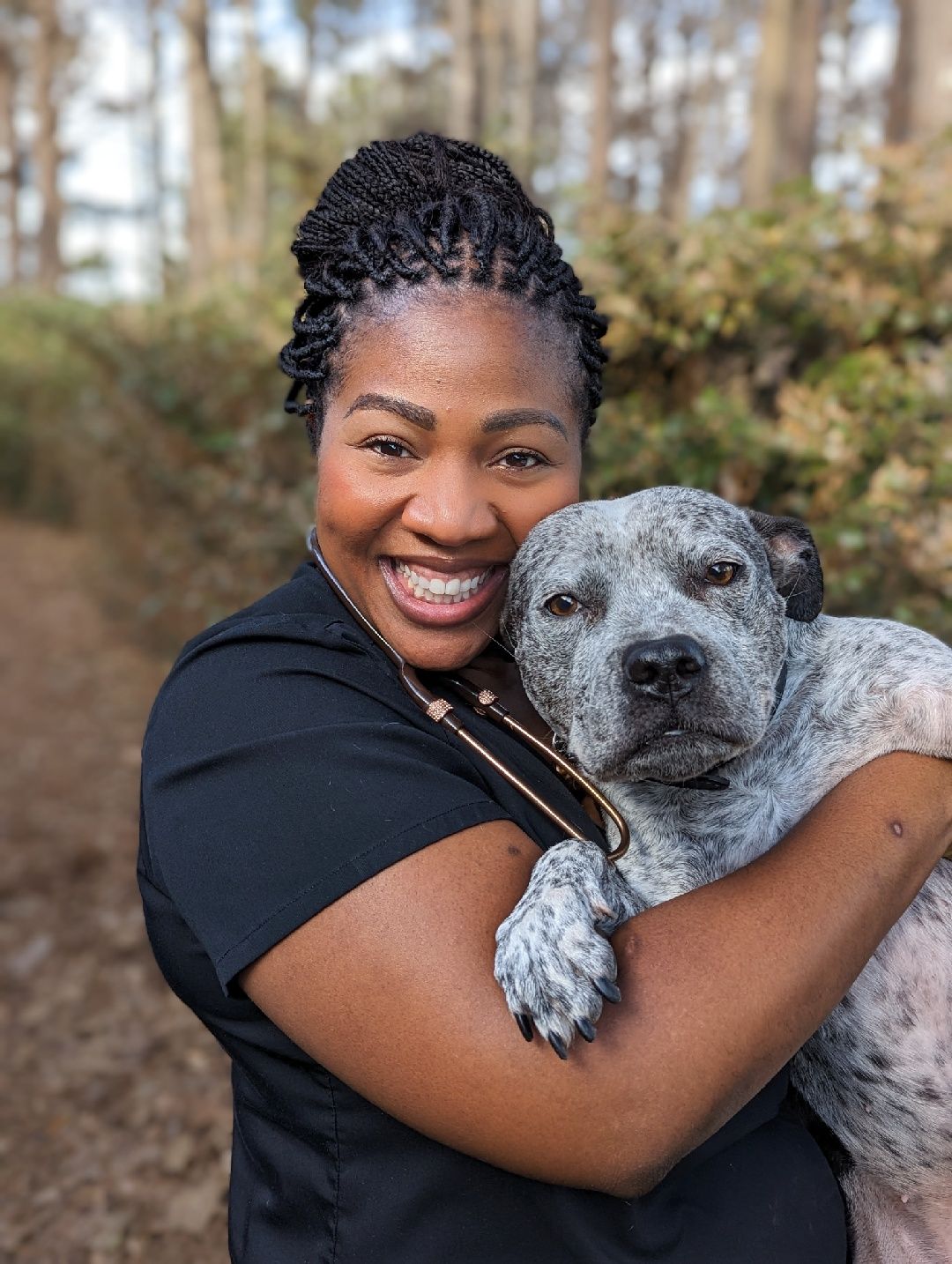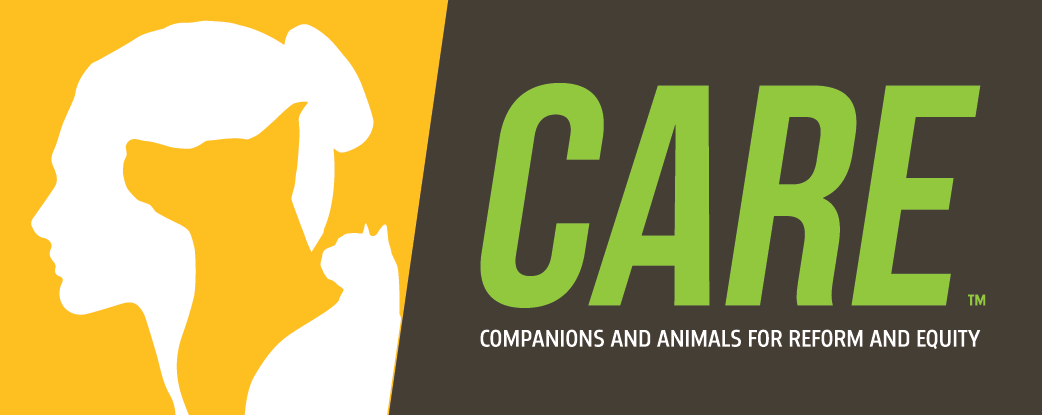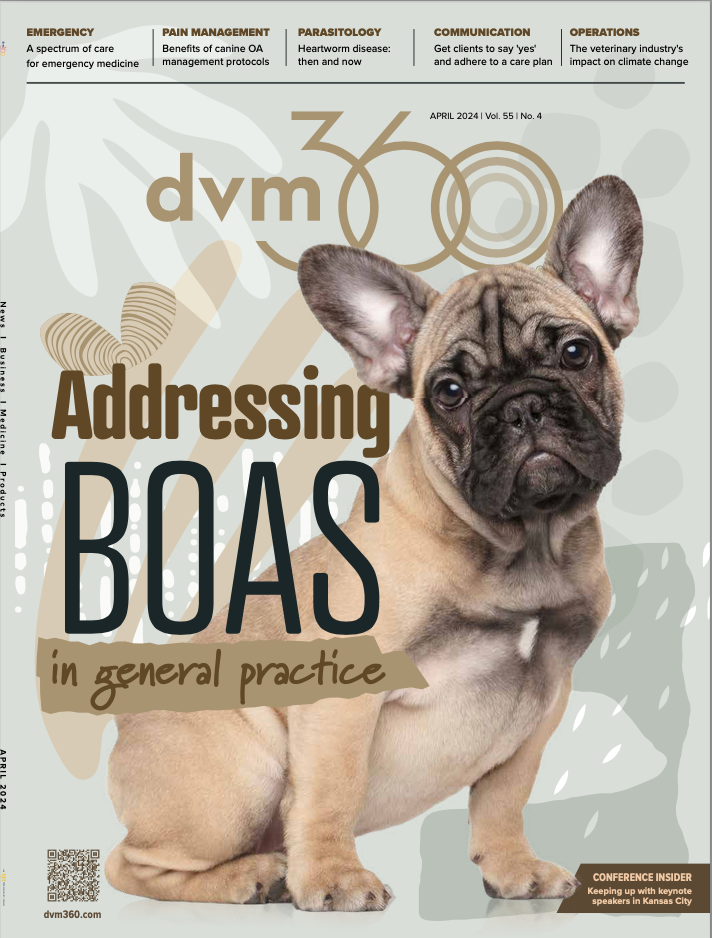Striving for equity in veterinary medicine
A closer look at Azalia Boyd, DVM, and the work she doing to progress the veterinary profession
Azalia Boyd, DVM, always dreamed of becoming a doctor. She started out as a biology major but soon switched to studying animal and poultry science after hearing her college roommate talk about giving a cow a pregnancy test in one of her courses. While attending Tuskegee University in Alabama, Boyd joined the pre-vet club and started volunteering at the university’s veterinary school. “I am super proud to be a graduate of the only HBCU [historically black college and university] that houses a veterinary school,” Boyd told dvm360 in an interview.
Azalia Boyd, DVM

Boyd is currently the chief veterinary medical officer (CVMO), for Companions and Animals for Reform and Equity’s (CARE) Urban Community Animal CARE Division and serves as the chair of CARE’s veterinary advisory board. CARE is an animal welfare organization aimed at amplifying Black, Indigenous, and people of color, and other marginalized voices using narratives, research, and community-centered investments
to protect pets and the people who love them within underrepresented
communities.
“Since childhood, I always had a deep love for science and math, which led me to pursue a career in veterinary medicine. I grew up in a Caribbean household, so my parents weren’t really keen on having a pet, but I always found ways to bring them home. In fact, I performed my first surgery on a squirrel in our yard using my mom’s sewing kit, somewhere between the ages of 7 and 9. I think it’s always been in me, and maybe that’s why my surgery skills are so great right now,” she said laughing.
After graduating with her DVM degree, Boyd decided to travel and learn more about different countries and how each culture approaches animal companionship and veterinary care. “I’ve also discovered that I have a passion for connecting with people.... Veterinary medicine is not just about treating animals, it’s also about helping and supporting their owners,” Boyd said. “I went to places in Africa, South America, the Caribbean islands, [and] Europe. I found out there’s an actual term for what I was doing: ethnographic research. I was just going to places and studying how people were interacting with their pets. [Sometimes] I would be brave enough to ask people questions about how they felt about their pet. I wanted to learn so much more about the cultural aspect and the difference from what we have in the Western world. That became intriguing to me. That journey really enriched my understanding of the human–animal bond from a cultural standpoint.”
Following her travels, Boyd served as an associate and medical director for hospitals in the metro Atlanta area before joining the CARE team. “We’re dedicated to rethinking and rebuilding animal welfare and animal protection. Our primary goal is to do that in a manner that respects and reflects the well-being of all individuals with a specific influence on the human-animal bond and human-animal well-being,” Boyd explained. Boyd noted that CARE places a focus on including the pet owner in its initiatives. “Far too often, the people within these communities are left out of the solution. CARE believes that the genius and solutions to community problems are found from the people within.”
As CVMO of the urban CAC program, Boyd explained that her tasks include “understanding what the barriers are for access to care and helping implement strategies to reduce those barriers.”
“My work isn’t as hands-on as it typically has been in clinical settings, but it’s really in helping to build sustainable processes for marginalized communities in regards to access to care.... My particular strategy, and our focus for preventative care, is going to be with heartworm disease and parvovirus in both rural and urban communities.” Heartworm disease and parvovirus are both preventable diseases, Boyd noted, adding, “We know that, in part, people aren’t getting the information that they need or they don’t trust where the information is coming from. So I help outline best medical practices from the lens of improving the spectrum of care.”
Boyd’s work also includes bringing resources and learning opportunities veterinary professionals who might not have easy access to these assets through a certification program called VetREDI. “VetREDI was designed to educate veterinary professionals on aspects that will help reduce barriers to accessing veterinary care—like cultural competency, the importance of racial equity, and even topics like microaggressions, privilege, and spectrum of care. And even better, all proceeds of VetREDI help to support people and their pets.” These certification programs and other resources can be found on the CARE website at https://careawo. org/ and any additional information can be found on the organization’s social media accounts on LinkedIn by the business name and on Instagram at @CAREforequity.
Logo courtesy of CARE.

Overall, Boyd works to positively impact the lives of those in her community and to boost the veterinary profession. “For the future of veterinary medicine, I hope to see a culture shift toward being more supportive, inclusive, and nurturing,” she said. “In an ideal world, veterinarians would remain trusted profes- sionals for all communities. Additionally, I hope to see a more diverse veterinary staff reflecting the diverse world of pet families. It’s disheartening for me to be the only doctor of color in many practices, if not all of them, that I’ve been in. I believe that a more diverse veterinary workforce could benefit both professionals and pet owners alike.”
One way to kickstart this change is through leadership. “It’s about leading by example. It’s about paving a way for others to follow. It’s recognizing that leadership isn’t always about receiving acknowledgment or even having everyone agree with you,” she said. “What’s most important to me as a leader is really making a lasting impact and a difference in people’s lives during my time in any leadership role that I’m in.”
